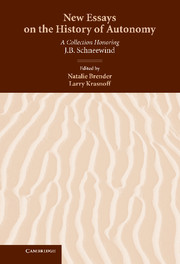Introduction
Published online by Cambridge University Press: 24 July 2009
Summary
Like every academic discipline, philosophy has a history. Unlike the other disciplines, however, philosophy has constantly struggled with and against the fact of its history. In traditional humanistic fields like literature and history, it is well accepted that current understandings are historically specific: today's writers situate themselves against the readings of previous generations, and they openly acknowledge that their own readings are motivated by the specific concerns of their own times. In scientific fields like physics and chemistry, by contrast, it is well accepted that history plays no essential role in contemporary practice: scientists understand their results as independently justified by the natural evidence, regardless of the historical contingencies that may have brought anyone to those results. The two understandings are of course radically opposed, and they may even provoke conflict within the academy. But within the disciplines themselves, there is a broad consensus on the role that the history of the discipline should play.
Philosophy, however, has constantly wavered between these two understandings. For the most part, the dominant view has been the scientific one: philosophical positions exist in the realm of reasons, and those reasons have no essential reference to time and place. But philosophy has never left the humanities, and the history of philosophy has remained a constant part of the field. At times, as in the heyday of logical positivism, it has seemed as if the historians might be banished entirely. But the banishment has never finally happened.
- Type
- Chapter
- Information
- New Essays on the History of AutonomyA Collection Honoring J. B. Schneewind, pp. 1 - 4Publisher: Cambridge University PressPrint publication year: 2004



